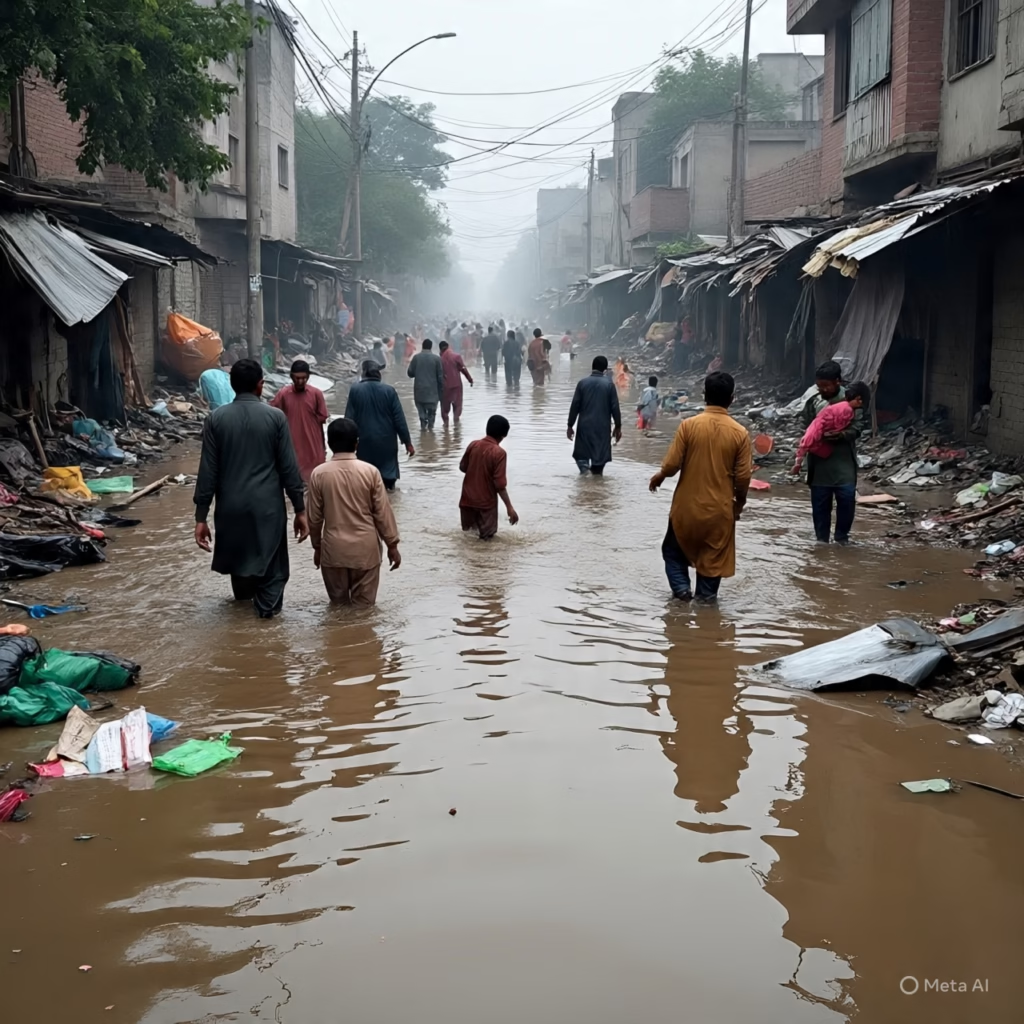
Title
Karachi Floods 2024: Unfolding the Deluge of Challenges
Blog Post of floods in Karachi
Introduction
In 2024 Karachi endured another chapter of urban flooding—a crisis that struck once again despite warnings and visible risk signs. In many ways, this was not a surprise. It underlined the city’s chronic vulnerabilities and served as a critical reminder that infrastructure and planning must catch up with changing climate realities.
Section 1 Causes of the 2024 Floods Karachi
Experts repeatedly pointed to clogged and encroached storm water drains as a primary cause of flooding even during relatively light rainfall. Hydrologists have noted that the cleaning of drains only before monsoon season is insufficient. A comprehensive, year round maintenance plan is essential to prevent such disasters .
Climate change has compounded the issue
. A chief meteorologist warned that rising global temperatures—now around 1.2 °C above preindustrial levels—have increased the likelihood of flooding events in vulnerable regions, possibly by thirtyfold .
Section 2 Government Response and Vision
In mid‑2024, then President Asif Ali Zardari pushed for a long‑term strategic overhaul of Karachi’s flood management systems, inspired by successful tunnel sewer projects in Washington DC, London, and Singapore . Despite this, implementation timelines and actual ground‑level changes remained limited.
Section 3 Broader 2024 Flood Impact Across Pakistan in karachi
The floods were not limited to Karachi. From late February onwards, various regions including Sindh, Balochistan, Khyber Pakhtunkhwa, and Gilgit‑Baltistan suffered severe rain‑related flooding. At least 100 deaths were reported, and infrastructure across the country faced significant damage, prompting emergency declarations and mobilization of relief efforts .
Moreover, the broader Afghanistan‑Pakistan Karachi floods
spanning March to September 2024 claimed over a thousand lives across both countries—with approximately 384 fatalities in Pakistan alone—and caused mass displacement and injuries .
Section 4 What Went Wrong
Structurally, the root of the issue lies in decades of underinvestment. The city’s drainage and sewage systems have been neglected, waste management remains fragmented, and unplanned urban growth has encroached upon natural water channels.
Urban planning experts and commentators have noted that neglect—even from political quarters—has turned such disasters into recurring, predictable events. As one voiced on social media:
“This has been 30‑40 years in the making …
neglect of Karachi’s development is cited as the main reason behind the city’s current crisis” .
Section 5 Pathways Forward
Karachi urgently needs a dual‑track approach: immediate actions like enforcing drain clearing across the year, removing encroachments, strengthening waste disposal systems, and adopting modern tools like GIS for urban mapping; and long‑term solutions like constructing efficient tunnel sewer systems and integrating climate‑resilient infrastructure .
Conclusion
The Karachi floods of 2024 weren’t just weather events—they were a stark wake‑up call. Climate change may be the trigger, but the root cause lies in sustained institutional neglect. The real challenge now is converting lessons into lasting solutions to protect Karachi in the years ahead.
http://Pakistan Meteorological Department seasonal outlook
Let me know if you’d like to tailor certain sections further or add specific links!
You might to like read this blog
https://manyviral.com/can-trumps-big-beautiful-bill-pass-the-senate/
Leave a Reply